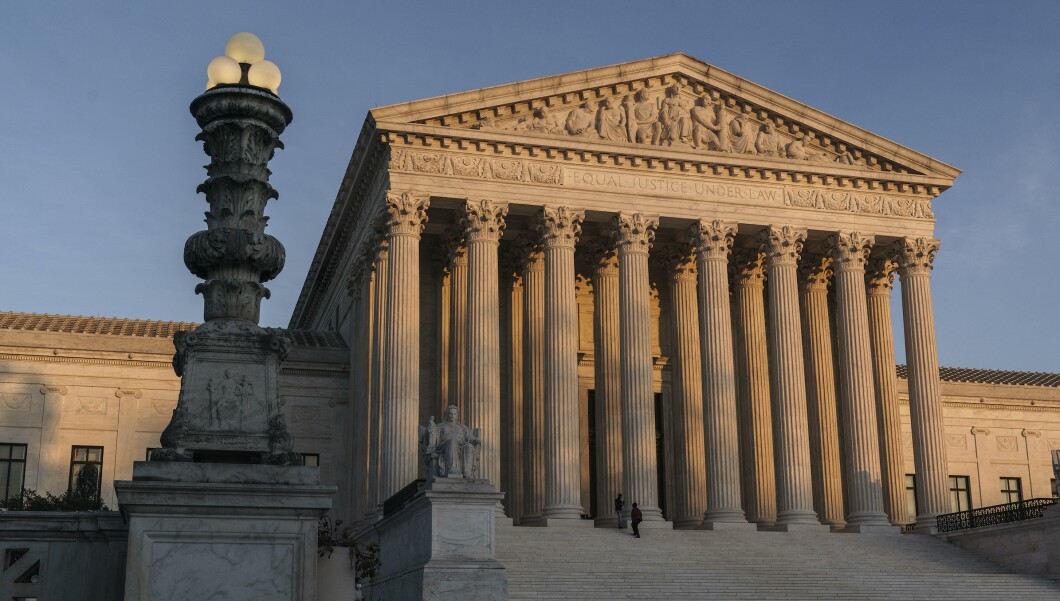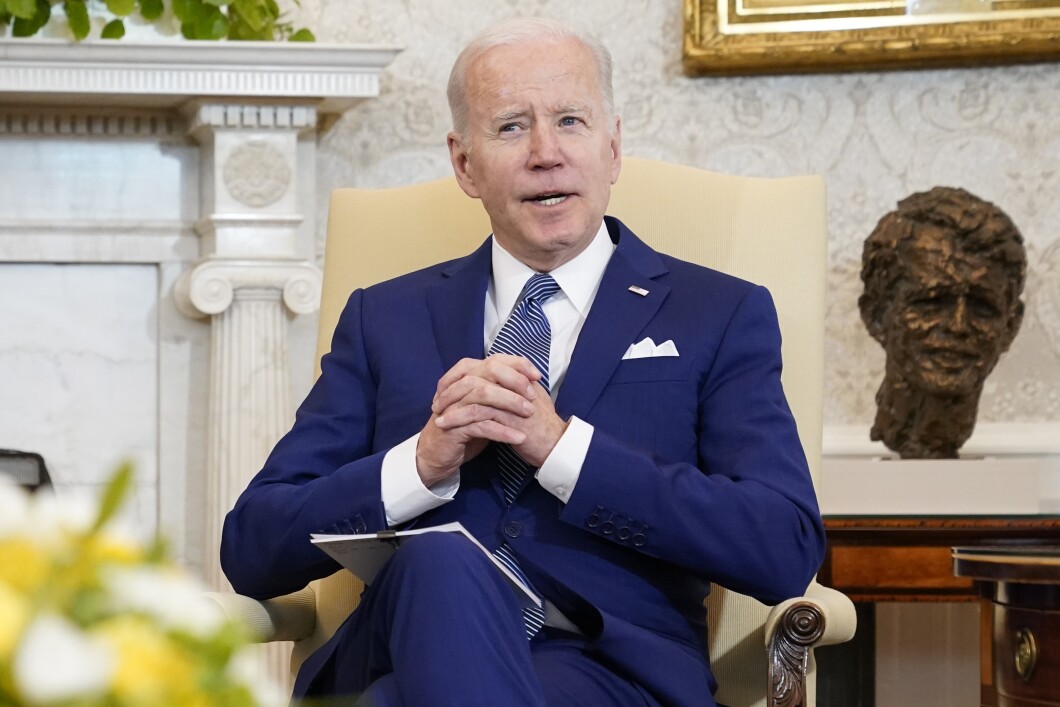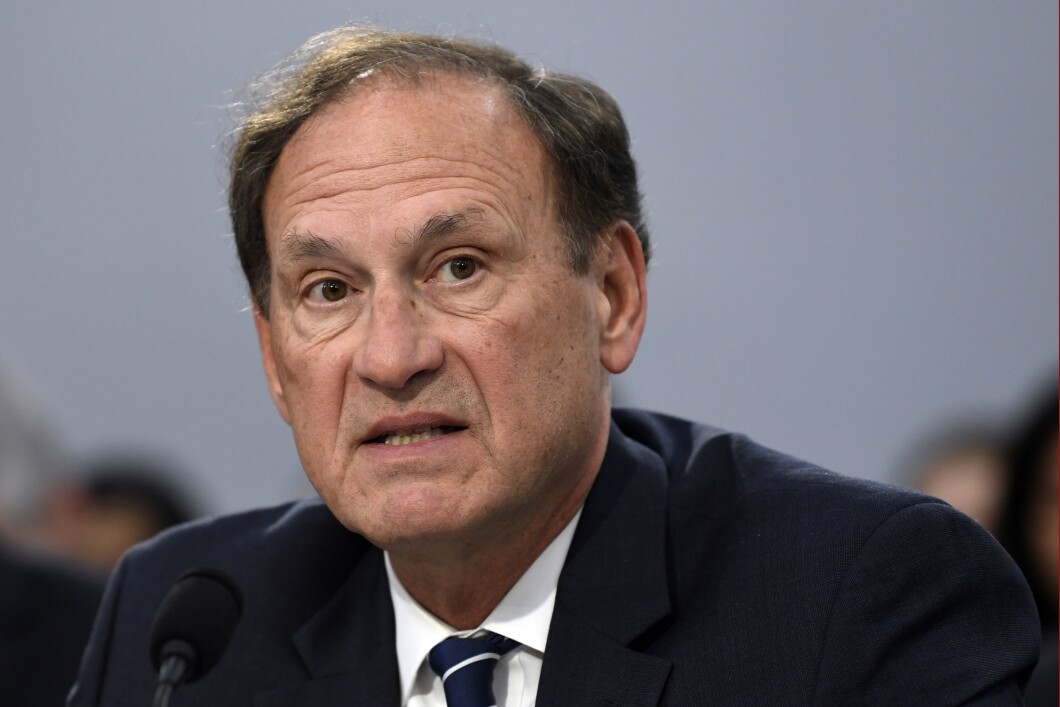
President Joe Biden‘s goal of forcing the richest people in the nation to pay a wealth tax will be weighed by the Supreme Court on Tuesday in a dispute over a couple’s $14,729 tax bill.
The issue before the justices in Moore v. United States is whether the federal government can tax certain types of “unrealized” gains, such as from fluctuations in the value of stocks and bonds that the owner has not yet sold and therefore not yet profited from.
VENEZUELA VOTES TO CLAIM REGION IN OIL-RICH GUYANA, RAISING FEARS OF CONFLICT
How the Moores got to the high court

In 2006, Charles and Kathleen Moore made an investment in the India-based KisanKraft Machine Tools company, which provides Indian farmers with tools and equipment. The pair invested $40,000 in exchange for 13% of the shares in the company.
The Moores didn’t receive dividends or other payments from KisanKraft, but the couple learned in 2018 that they had to pay taxes on their share of the company’s reinvested lifetime earnings under the mandatory repatriation tax, a part of the Tax Cut and Jobs Act signed by former President Donald Trump in 2017.
Under the law, U.S. taxpayers who owned at least 10% of a foreign company the year Trump signed the law in 2017 were required to pay a one-time tax on the value of their post-1986 holdings at that time, not on what they paid for the holdings initially. That one-time tax continues to apply to people who buy more than 10% in an overseas business. The Moores were assessed to have $132,512 in additional taxable income from their foreign investment and were forced to pay $14,729 more in taxes, according to their Supreme Court petition.
The Moore family is seeking a refund for the taxes they paid for their ownership of a piece of the company and are also arguing for a narrow interpretation of the Constitution’s 16th Amendment, the 1913 addition that empowered Congress to levy income tax.
A federal district court sided with the government and moved to dismiss the case, finding that the 16th Amendment gave Congress the ability to tax incomes “from whatever source derived.” The U.S. Court of Appeals for the 9th Circuit affirmed the lower court’s decision.
Biden’s plan to tax the ultrawealthy implicated by the case

The notion of taxing unrealized income is the pretext for several Democratic proposals targeting wealthy households, including Biden’s billionaire minimum income tax. Congressional Democrats reintroduced the tax proposal last week, and Biden has repeatedly touted his plan to supporters.
When the justices rule on the 2017 tax dispute, the court could also have a window to rule in a way that upends the concept of taxing unrealized gains.
However, even some detractors of billionaire tax proposals, including former Republican House Speaker Paul Ryan, aren’t convinced that the Moores’ lawsuit is anything more than a “misguided challenge” that, if successful, could result in a “a lot of” the U.S. Tax Code being found unconstitutional.
“I’m not for a wealth tax, but I think if you use this as the argument to spike a wealth tax, you’re going to basically get rid of, I don’t know, a third of the tax code,” Ryan said during a September event at the Brookings Institution.
Meanwhile, some libertarian groups, including the Cato Institute, filed amicus briefs arguing the Supreme Court has consistently held that an “income” tax can only be imposed on realized gains.
“If the bright‐line rule requiring realization for an income tax to be imposed were jettisoned, then there would be no limit to the types of taxes the federal government could enact. Indeed, such a rule would open the door for the federal government to impose a future wealth tax entirely divorced from any connection to actual income,” Cato’s filing reads.
The Justice Department contends that the Moores’ argument that the mandatory repatriation tax is a tax on property is not “squared with the MRT’s terms or longstanding historical practice,” according to a filing.
Ethics concerns at the core of the dispute

While the Supreme Court’s ethics are not the subject of the dispute on Tuesday, the case has sparked concerns from ethics watchdogs, some of which have called on Justice Samuel Alito to recuse from the case due to their perceived conflict that Alito has in the case.
One of the Moores’ lawyers, David Rivkin of Baker & Hostetler, co-wrote two articles that described Alito favorably. The article appeared in the Wall Street Journal’s opinion section this summer and gave Alito a venue to discuss calls for stronger ethics.
Alito has directly rejected demands by some Democrats and progressives that he recuse from the Moore case and suggested “there was nothing out of the ordinary about the interviews in question.”
Biden has not embraced a forthright wealth tax like the ones promoted by Sen. Elizabeth Warren (D-MA) during her 2020 campaign, but he has suggested the nation would benefit from a scaled-back model.
CLICK HERE TO READ MORE FROM THE WASHINGTON EXAMINER
The president’s most recent budget would require taxpayers with more than $100 million to pay a minimum of 25% on their capital gains each year, whether they sold assets for profit or continue to hold them.
A decision in the case is expected by the end of June.





